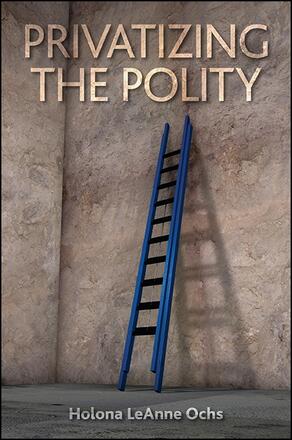
Privatizing the Polity
Alternative formats available from:
Presents evidence that the expansion of welfare privatization makes it harder for people to move out of poverty in large numbers.
Description
Research on poverty and research on governance currently exist as largely disparate literatures without a framework for building knowledge regarding how policies and practices compare as poverty alleviation strategies. In Privatizing the Polity, Holona LeAnne Ochs examines the evolution of the governance of welfare programs across the United States. Throughout the political spectrum the trend in recent decades has been towards welfare privatization, shifting the boundaries of poverty governance from public to private actors—whether they are foundations or social entrepreneurs—whose interests in poverty governance are more obscure. The analysis of more than eighteen years of data suggests that strategies of devolution and privatization make it more difficult for people to move out of poverty. At the same time the framework for understanding the governance structures, enactment practices, and social wealth leverage presented in Privatizing the Polity offers numerous opportunities for acquiring a deeper understanding of assumptions formerly taken for granted and redirecting the system to enhance poverty alleviation.
Holona LeAnne Ochs is Assistant Professor of Political Science at Lehigh University. She is the coauthor (with Richard Seltzer) of Getting a Cut: A Contextual Understanding of Commission Systems and Gratuity: A Contextual Understanding of Tipping Norms from the Perspective of Tipped Employees.
Reviews
"…[an] excellent work … Highly recommended. " — CHOICE